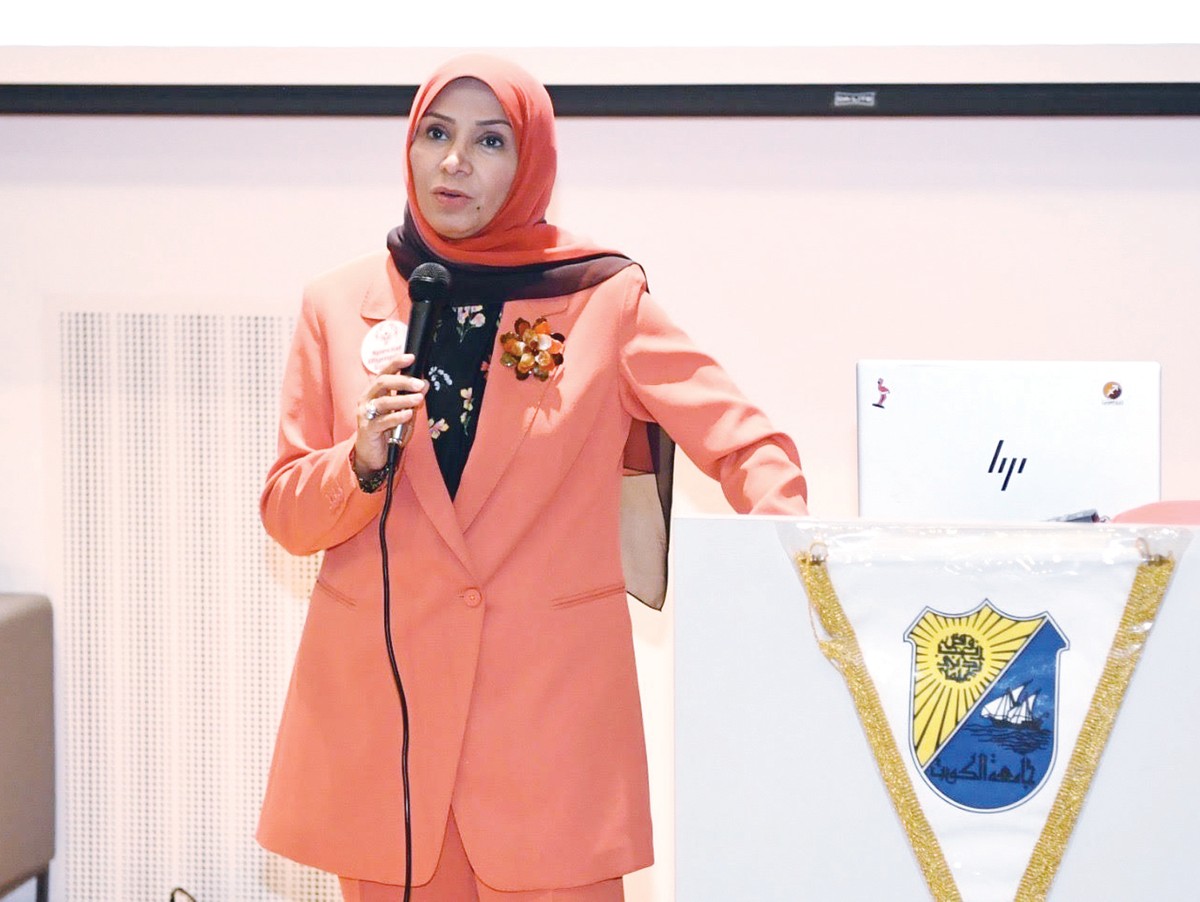21/05/2025
21/05/2025

KUWAIT CITY, May 21: Rehab Bouresli, National Director of Special Olympics Kuwait, underscored the pivotal role of educational institutions in supporting the organization’s mission, particularly through active participation in the Unified Champion Schools program. She emphasized that such collaboration is essential for transforming the program into a tangible model of educational integration through sports, laying the foundation for inclusive school communities that promote acceptance, understanding, and the celebration of differences.
Bouresli made these remarks during an awareness lecture on the Special Olympics and its programs, hosted by the College of Life Sciences at Kuwait University.
Expressing her appreciation for the strong turnout and active engagement during the event, Bouresli extended her gratitude to the college’s staff and organizers, especially faculty member Dr. Ghanima Al-Faleh, for the excellent preparation and execution of the event.
She opened the lecture by tracing the origins of the global Special Olympics movement, highlighting its evolution from a personal initiative launched in 1986 by Mrs. Eunice Kennedy Shriver, sister of the late U.S. President John F. Kennedy, into the world’s largest humanitarian sports organization. The movement has since grown into a global force for the empowerment of individuals with intellectual disabilities through sports, education, and health programs.
Bouresli also reviewed the significant expansion of Special Olympics Kuwait since the resumption of its activities in 2018, noting the growth in its programs, number of participating athletes, and its achievements on regional and international stages.
Following her presentation, Captain Bilal Al-Hamami, Program Officer at Special Olympics Kuwait, provided an overview of the sports programs, the various games available, and the athlete classification system designed to give every individual, regardless of disability level, a fair chance to compete.
Captain Linda Jaber, the Initiatives Officer, elaborated on the organization’s wide-ranging initiatives aimed at developing athletes’ skills through sports, education, and community involvement. She also highlighted efforts to involve the broader community and athletes’ families in activities and events, reinforcing the importance of psychological and social support for families.
In closing, Health Program Specialist Dalal Bou Hamad discussed the Special Olympics Health Program, emphasizing its mission to promote the overall well-being of individuals with intellectual disabilities through accessible and inclusive health care initiatives.


